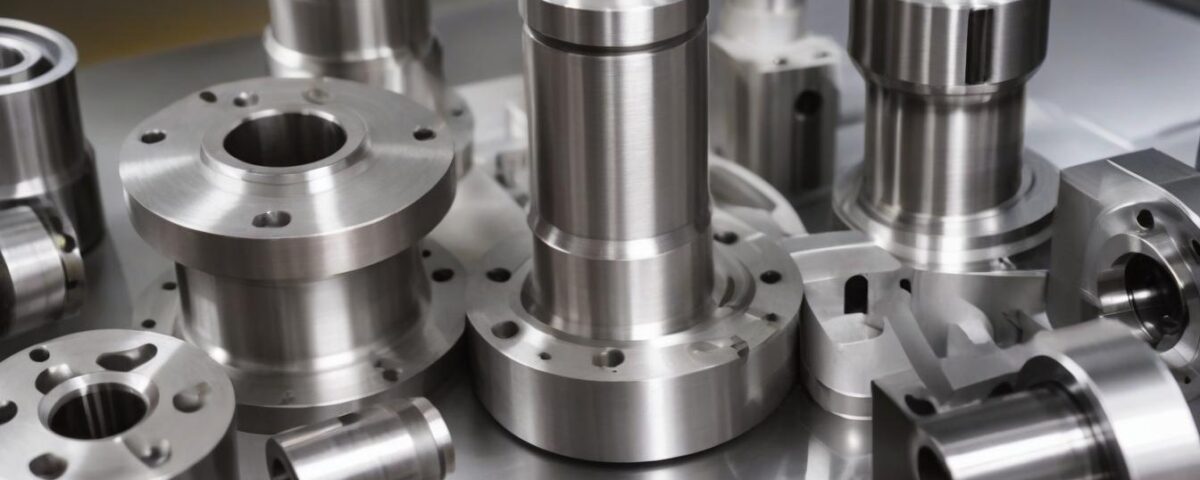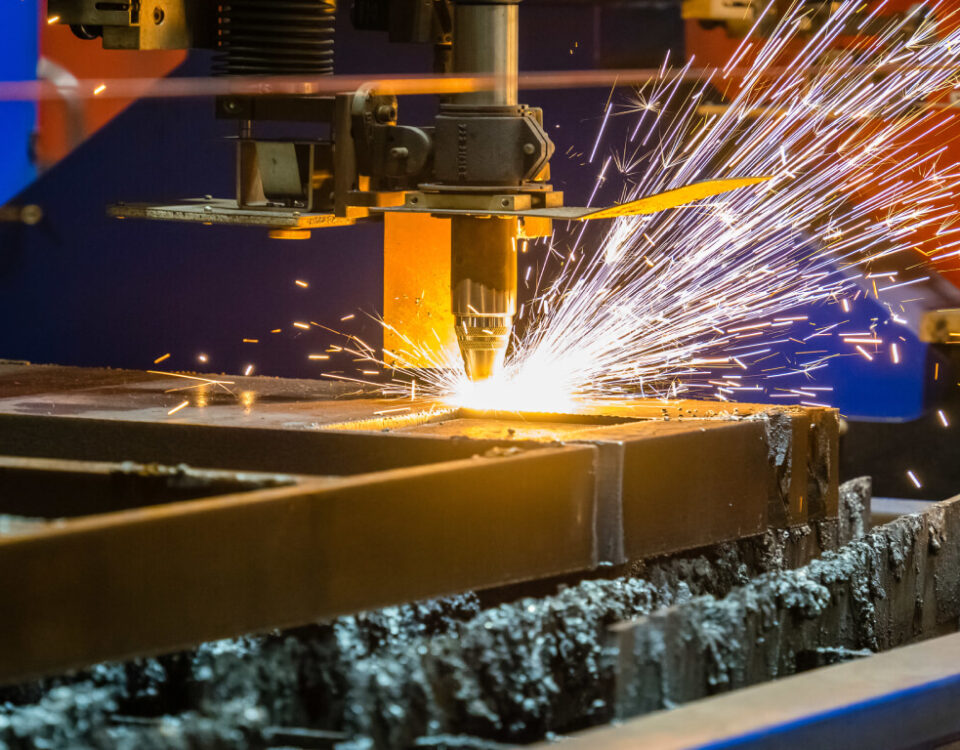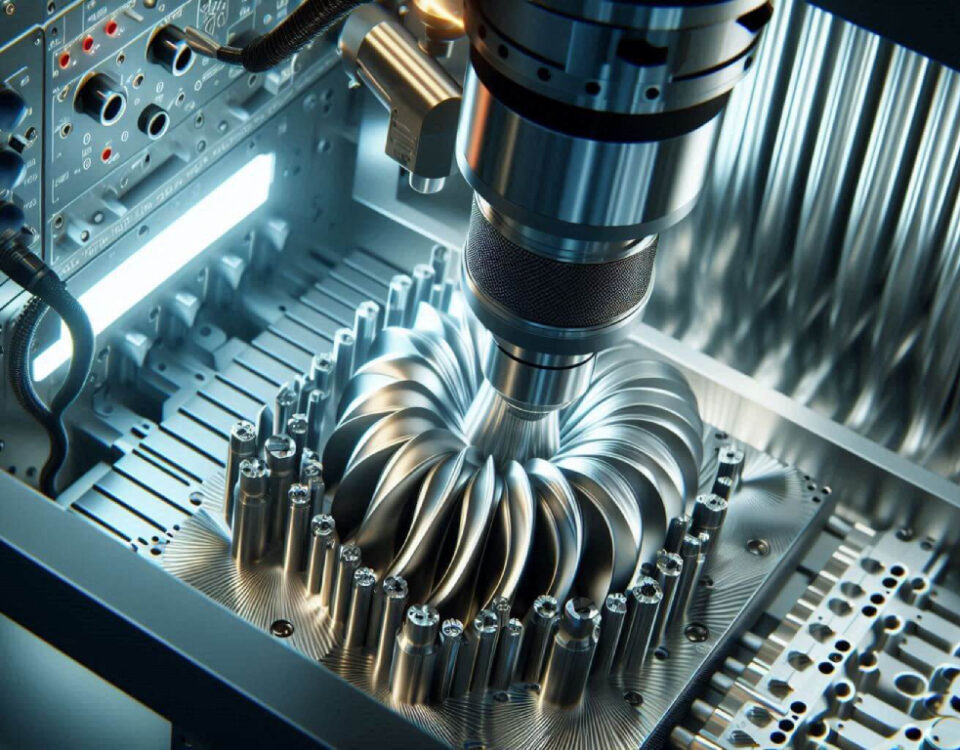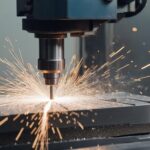
Define CNC Milling Machine: A Beginner’s Guide to CNC Machining
8 August 2024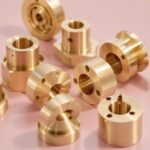
Common Challenges in Brass CNC Machining
13 August 2024Are you struggling to find a reliable solution for producing high-precision metal components? Frustrated with the limitations of traditional machining methods? Turned metal CNC machining services might be the answer you're looking for. This comprehensive guide will provide you with all the information you need to understand and leverage this advanced manufacturing process.
Turned metal CNC machining is a versatile and precise manufacturing process that uses computer-controlled lathes to create intricate metal parts. It offers significant advantages over other methods, such as higher precision, faster production times, and the ability to work with a wide range of materials.
Curious to learn more? Let's dive into the details of what makes turned metal CNC machining a game-changer in modern manufacturing.
What is Turned Metal CNC Machining?
Turned metal CNC machining is a sophisticated and precise manufacturing process that uses computer numerical control (CNC) technology to produce metal components. This process specifically involves the use of CNC lathes or turning centers, which rotate the workpiece while a stationary cutting tool removes material to achieve the desired shape and dimensions.
How Turned Metal CNC Machining Works
At its core, turned metal CNC machining revolves around the principle of rotating the workpiece against a cutting tool. Here’s a detailed breakdown of how the process works:
- Workpiece Mounting: The metal workpiece is securely mounted on the spindle of the CNC lathe using workholding devices such as chucks, collets, or faceplates.
- Spindle Rotation: The spindle, driven by the CNC lathe, rotates the workpiece at high speeds. The rotation speed is precisely controlled and can vary depending on the material and the desired outcome.
- Tool Movement: The cutting tool, which is held in the lathe’s tool turret or tool post, is brought into contact with the rotating workpiece. The tool can move along multiple axes (typically X and Z axes) to perform various cutting operations.
- Material Removal: As the workpiece rotates, the cutting tool removes material in a controlled manner. This process is called turning, and it can produce cylindrical shapes, tapers, grooves, threads, and other features.
- Precision Control: The entire operation is controlled by a computer program that dictates the movements of the cutting tool and the rotation speed of the workpiece. This ensures high precision and repeatability, allowing for the production of complex and intricate parts with tight tolerances.
Differences Between Turning and Other CNC Machining Processes
While CNC machining encompasses various techniques such as milling, drilling, and grinding, turning stands out due to its unique approach to material removal. Here’s a comparison to highlight the differences:
Turning vs. Milling:
- Turning: In turning, the workpiece rotates while the cutting tool remains stationary, removing material as it moves along the surface.
- Milling: In milling, the cutting tool rotates while the workpiece remains stationary or moves in multiple directions. Milling is ideal for creating complex 3D shapes and flat surfaces.
Turning vs. Drilling:
- Turning: Primarily used for creating cylindrical parts and features on the external surface of the workpiece.
- Drilling: Involves creating holes by rotating a cutting tool that advances along its axis into the workpiece. Drilling is mainly used for producing round holes.
Types of Turning Operations
Turned metal CNC machining can perform a variety of operations to produce different shapes and features. Some common turning operations include:
- Facing: Cutting a flat surface perpendicular to the workpiece's axis, usually to create a smooth surface at the end of the workpiece.
- Straight Turning: Removing material along the length of the workpiece to reduce its diameter.
- Taper Turning: Creating a conical shape by gradually reducing the diameter of the workpiece along its length.
- Grooving: Cutting a narrow channel or groove into the workpiece.
- Threading: Creating helical grooves or threads on the workpiece, commonly used for screws and bolts.
- Boring: Enlarging an existing hole or cylindrical cavity in the workpiece.
Components and Equipment Used in Turned Metal CNC Machining
CNC Lathes and Turning Centers
CNC lathes and turning centers are the primary machines used in turned metal CNC machining. These machines come with various features, including multiple axes of movement, tool changers, and high-speed spindles, allowing for high precision and versatility.
Cutting Tools and Inserts
The cutting tools and inserts used in CNC turning are crucial for achieving the desired precision and finish. These tools are typically made from materials such as carbide, high-speed steel, or ceramics, and are designed to withstand the high forces and temperatures encountered during machining.
Workholding Devices
- Chucks: Used to hold the workpiece securely in place during machining.
- Collets: Provide a more precise grip for smaller or delicate parts.
- Faceplates: Used for irregularly shaped workpieces that cannot be held with chucks or collets.
Coolants and Lubricants
Coolants and lubricants are essential in CNC machining to reduce heat and friction, which helps in prolonging tool life and achieving better surface finishes.
Materials Used in Turned Metal CNC Machining
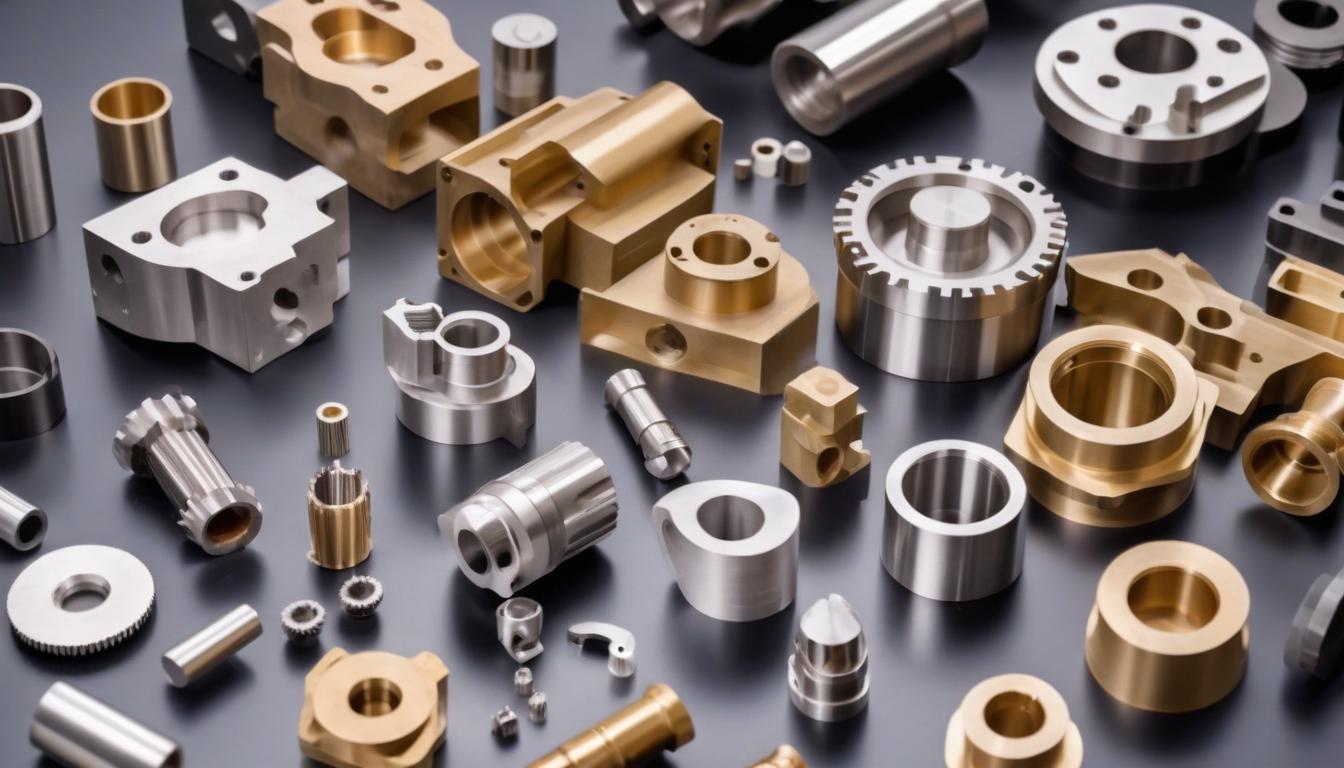
Turned metal CNC machining can work with a diverse range of materials, each offering unique properties that influence the machining process and the performance of the final product. The choice of material depends on the specific requirements of the application, such as strength, weight, corrosion resistance, and thermal stability. Below is an in-depth look at the common and specialty metals used in turned metal CNC machining.
Common Metals
Aluminum
Aluminum is one of the most popular materials in CNC machining due to its excellent machinability, lightweight, and good corrosion resistance. It's widely used in industries such as aerospace, automotive, and electronics.
- Properties: Lightweight, high strength-to-weight ratio, good corrosion resistance, excellent thermal and electrical conductivity.
- Applications: Aerospace components, automotive parts, electronic housings, and consumer goods.
Steel
Steel, including its various alloys, is highly valued for its strength, durability, and versatility. It can be heat-treated to enhance its properties and is used in numerous industrial applications.
- Properties: High strength, toughness, wear resistance, and can be heat-treated for additional hardness.
- Applications: Automotive components, industrial machinery, structural parts, and tools.
Brass
Brass is an alloy of copper and zinc, known for its excellent machinability and attractive appearance. It is often used in decorative applications as well as functional components that require good corrosion resistance.
- Properties: Good machinability, corrosion resistance, excellent thermal and electrical conductivity, and aesthetic appeal.
- Applications: Plumbing fittings, decorative items, electrical connectors, and musical instruments.
Copper
Copper is highly conductive and is primarily used for electrical components and heat exchangers. It offers good machinability but requires careful handling to avoid work hardening.
- Properties: Excellent electrical and thermal conductivity, good corrosion resistance, and antimicrobial properties.
- Applications: Electrical components, heat exchangers, plumbing, and HVAC systems.
Titanium
Titanium is known for its high strength, low weight, and exceptional corrosion resistance. It is used in applications where these properties are critical, such as in aerospace and medical industries.
- Properties: High strength-to-weight ratio, excellent corrosion resistance, biocompatibility, and can withstand extreme temperatures.
- Applications: Aerospace parts, medical implants, and high-performance automotive components.
Specialty Metals
Inconel
Inconel is a family of nickel-chromium-based superalloys known for their ability to withstand extreme temperatures and harsh environments. They are commonly used in aerospace and chemical processing industries.
- Properties: High temperature resistance, excellent strength, and corrosion resistance in extreme environments.
- Applications: Turbine blades, exhaust systems, and chemical processing equipment.
Hastelloy
Hastelloy is another group of high-performance alloys primarily composed of nickel, molybdenum, and chromium. It offers excellent resistance to corrosion and oxidation, making it suitable for harsh chemical environments.
- Properties: Outstanding corrosion resistance, high strength, and stability in high-temperature environments.
- Applications: Chemical processing equipment, marine engineering, and pollution control systems.
Stainless Steel
Stainless steel is an alloy of iron, chromium, and other elements that enhance its corrosion resistance and mechanical properties. It is available in various grades, each suited to different applications.
- Properties: Excellent corrosion resistance, high strength, and can be polished to a high finish. Available in various grades with specific properties.
- Applications: Medical instruments, food processing equipment, kitchenware, and architectural components.
Material Properties and Their Impact on the Machining Process
The choice of material significantly impacts the CNC machining process, influencing factors such as tool wear, cutting speeds, and machining strategies. Here are some key considerations for different materials:
- Hardness: Harder materials, such as titanium and stainless steel, require more robust cutting tools and slower machining speeds to prevent tool wear and breakage.
- Tensile Strength: Materials with high tensile strength, like Inconel and Hastelloy, pose challenges in terms of machining forces and tool life. Specialized cutting tools and techniques are often necessary.
- Thermal Conductivity: Materials with high thermal conductivity, like aluminum and copper, dissipate heat quickly, allowing for higher machining speeds. However, they may also require effective cooling to prevent thermal distortion.
- Corrosion Resistance: The corrosion resistance of materials like stainless steel and titanium makes them ideal for harsh environments but can also influence the choice of coolants and lubricants used during machining.
- Machinability: This refers to the ease with which a material can be machined. Metals like aluminum and brass are highly machinable, enabling faster production and better surface finishes. In contrast, materials like titanium and Inconel require careful handling and specialized tools.
The Turned Metal CNC Machining Process
Step-by-Step Overview
- Design: Creating a detailed CAD model of the part to be machined.
- Programming: Generating CNC programs using CAM software to control the machining process.
- Setup: Installing the workpiece and cutting tools in the CNC lathe.
- Machining: Executing the CNC program to machine the part.
- Finishing: Performing additional processes such as deburring, polishing, or coating to achieve the desired surface finish and dimensional accuracy.
Importance of CAD/CAM Software
CAD/CAM software plays a critical role in the turned metal CNC machining process by enabling precise design, programming, and simulation, ensuring that the final product meets the required specifications.
Role of Precision and Accuracy
Precision and accuracy are paramount in CNC machining, as they determine the quality and functionality of the final parts. Advanced CNC machines and rigorous quality control measures help achieve tight tolerances and high repeatability.
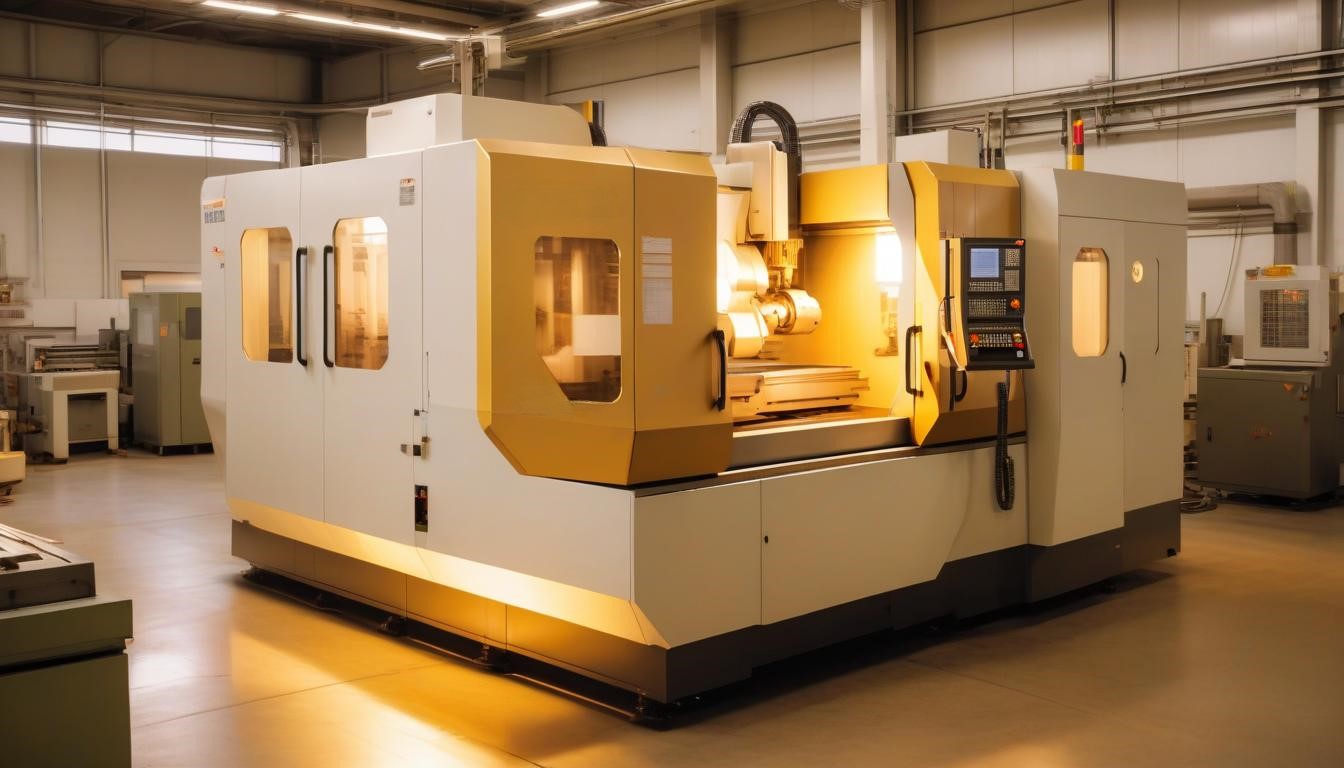
Applications of Turned Metal CNC Machining
Automotive Industry
Turned metal CNC machining is widely used in the automotive industry to produce high-precision components such as engine parts, shafts, and gears.
Aerospace Industry
The aerospace industry relies on turned metal CNC machining for manufacturing critical components like landing gear parts and turbine blades, which require high precision and durability.
Medical Industry
In the medical industry, CNC machining is essential for producing surgical instruments, implants, and other medical devices with stringent quality requirements.
Electronics Industry
The electronics industry benefits from CNC machining for creating connectors, housings, and other components that require high precision and intricate designs.
Advantages of Turned Metal CNC Machining Services
Turned metal CNC machining offers a range of advantages that make it a preferred choice for producing high-precision metal components across various industries. These benefits stem from the technology's inherent capabilities, including its precision, efficiency, and versatility. Here’s a detailed look at the key advantages of using CNC turning for metal machining:
1. High Precision and Tight Tolerances
CNC turning machines are designed to achieve exceptionally high levels of precision and consistency.
- Precision: CNC lathes use advanced control systems to execute precise movements, allowing for the creation of intricate geometries and detailed features. This precision is crucial for applications where exact dimensions and tight tolerances are required.
- Tight Tolerances: CNC turning can achieve tight tolerances, often within micrometers, which is essential for parts used in critical applications like aerospace and medical devices. This level of accuracy ensures that parts fit together correctly and function as intended.
2. Cost-Effectiveness for Both Small and Large Production Runs
CNC turning offers significant cost advantages, whether for small-scale custom parts or large-volume production runs.
- Small Production Runs: For smaller production runs, CNC turning provides a cost-effective solution due to its ability to quickly and accurately produce parts without the need for costly tooling changes. The flexibility of CNC machines allows for efficient production of custom or low-volume parts.
- Large Production Runs: For larger production runs, CNC turning is efficient and economical due to its automation capabilities. Once set up, CNC machines can produce large quantities of parts with minimal labor and operational costs, making it a cost-effective option for high-volume manufacturing.
3. Versatility in Creating Complex Geometries
CNC turning machines are highly versatile and capable of producing a wide range of complex geometries.
- Complex Shapes: Creating complex and intricate shapes that would be challenging or impossible to achieve with traditional manual turning. This includes features like threads, grooves, and contours.
- Multi-Axis Machining: Advanced CNC turning centers equipped with additional axes and live tooling can perform multiple operations in a single setup, such as turning, milling, and drilling. This versatility enhances the machine’s capability to produce multifaceted parts with greater efficiency.
4. Shorter Lead Times Compared to Traditional Machining Methods
CNC turning significantly reduces lead times, making it an attractive option for industries with tight schedules.
- Rapid Setup and Programming: Modern CNC turning machines can be set up quickly, and programming can be done in a fraction of the time compared to traditional methods. This rapid setup translates to faster production times.
- Automated Operations: The automation of CNC machines allows for continuous operation, reducing downtime and speeding up production. This is especially beneficial for meeting urgent deadlines and reducing time-to-market for new products.
5. Consistent Quality and Reproducibility
CNC turning ensures consistent quality and reproducibility of parts, which is essential for maintaining high standards across multiple production runs.
- Consistency: Once programmed, CNC machines produce parts with consistent quality and accuracy, minimizing variations that can occur with manual machining. This consistency is vital for applications where uniformity is crucial.
- Reproducibility: CNC machines can reproduce identical parts with the same precision across multiple production runs. This reproducibility ensures that each part meets the specified standards and performs consistently.
6. Minimal Human Error and Labor Costs
The automation and precision of CNC turning reduce the risk of human error and associated labor costs.
- Reduced Manual Intervention: CNC machines operate based on programmed instructions, minimizing the need for manual adjustments and reducing the potential for errors. This leads to fewer defects and rework.
- Lower Labor Costs: With CNC turning, the need for skilled manual labor is reduced. The machines can operate autonomously, requiring less oversight and resulting in lower labor costs.
7. Capability to Work with a Wide Range of Materials
CNC turning can handle various metals and materials, offering flexibility in material selection.
- Metals: CNC turning is suitable for a wide range of metals, including aluminum, steel, brass, copper, and specialty alloys like titanium and Inconel. This capability allows manufacturers to choose materials based on the specific requirements of the application.
- Material-Specific Settings: CNC machines can be programmed with settings tailored to the properties of different materials, ensuring optimal machining conditions and results.
8. Enhanced Safety and Work Environment
CNC turning improves workplace safety and contributes to a better work environment.
- Safer Operation: The automation of CNC machines reduces the need for manual handling of cutting tools and workpieces, which minimizes the risk of accidents and injuries.
- Clean Work Environment: CNC machines are designed to contain coolant and chips, reducing the mess and potential hazards associated with traditional machining methods.
Challenges and Considerations in Turned Metal CNC Machining
Potential Issues with Tool Wear and Breakage
Tool wear and breakage are common challenges in CNC machining, impacting the quality of parts and increasing downtime. Using high-quality tools and implementing proper maintenance practices can mitigate these issues.
Material-Specific Challenges
Different materials pose unique challenges. For example, machining hardened steel requires specialized tools and techniques, while titanium's high strength and low thermal conductivity make it challenging to machine.
Importance of Proper Machine Maintenance and Calibration
Regular maintenance and calibration of CNC machines are crucial to ensure consistent performance and accuracy. This includes checking for wear and tear, lubricating moving parts, and aligning the machine components.
Quality Control Measures
Implementing rigorous quality control measures, such as dimensional inspections, surface finish evaluations, and tolerance checks, ensures that the final products meet the required specifications.
Conclusion
Turned metal CNC machining is a powerful and versatile method for producing high-precision components. Its ability to achieve tight tolerances, handle complex geometries, and work with various metals makes it indispensable across industries like automotive, aerospace, and medical. The process is not only precise but also cost-effective, whether for small or large production runs. With shorter lead times, reduced labor costs, and consistent quality, CNC turning is an essential tool for manufacturers looking to deliver reliable, high-quality parts efficiently.

